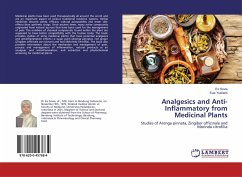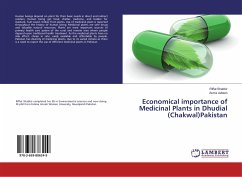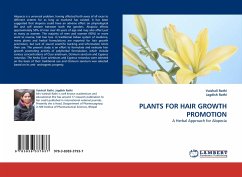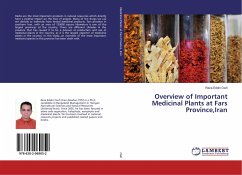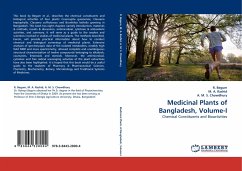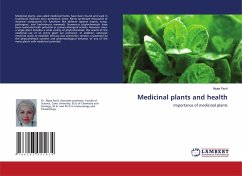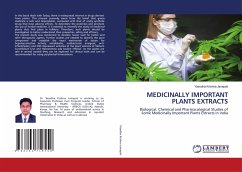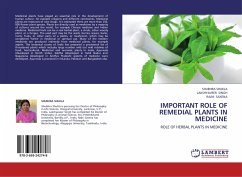
IMPORTANT ROLE OF REMEDIAL PLANTS IN MEDICINE
ROLE OF HERBAL PLANTS IN MEDICINE
Versandkostenfrei!
Versandfertig in 6-10 Tagen
32,99 €
inkl. MwSt.

PAYBACK Punkte
16 °P sammeln!
Medicinal plants have played an essential role in the development of human culture, for example religions and different ceremonies. Medicinal plants are resources of new drugs. It is estimated there are more than 250, 000 flower plant species. Plants are directly used as medicines by a majority of cultures around the world, for example Chinese medicine and Indian medicine. Medicinal herb can be a real herbal plant, a shrub, other woody plant, or a fungus. The used part may be the seeds, berries, leaves, barks, roots, fruits, or other parts of a plants, or mushroom, which may be considered "her...
Medicinal plants have played an essential role in the development of human culture, for example religions and different ceremonies. Medicinal plants are resources of new drugs. It is estimated there are more than 250, 000 flower plant species. Plants are directly used as medicines by a majority of cultures around the world, for example Chinese medicine and Indian medicine. Medicinal herb can be a real herbal plant, a shrub, other woody plant, or a fungus. The used part may be the seeds, berries, leaves, barks, roots, fruits, or other parts of a plants, or mushroom, which may be considered "herbs" in medicinal or spiritual use. Many of the modern medicines are produced indirectly from medicinal plants, for example aspirin. The botanical survey of India has prepared a provisional list of threatened plants which includes large number wild (or) wild relatives of food, horticultural, Medicinal and aromatic plants. In India, Ayurveda (developed in North India), Siddha (developed in Tamil Nadu) and Nagarjuna (developed in Andhra Pradesh) systems of medicine were developed. Ayurveda is practiced in SriLanka, Pakistan and Bangladesh also.




